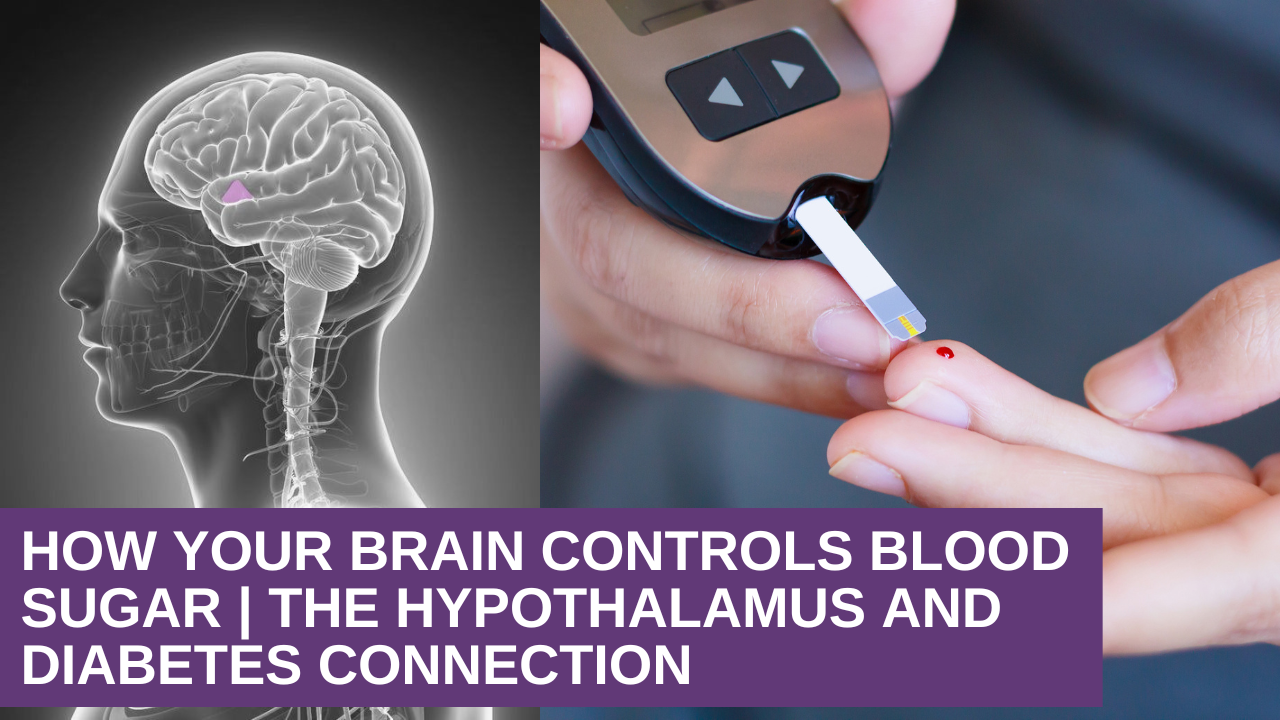We’ve been told diabetes starts in the pancreas. But new research is revealing something even more powerful: Blood sugar regulation may begin — or break down — in your brain. And the hypothalamus is at the center of it all.
Let’s break this down.
The pancreas gets most of the attention in diabetes — it produces insulin, the hormone that helps your cells absorb glucose from your blood.
But the pancreas doesn’t act on its own.
It takes its cues from your hypothalamus — the command center in your brain that regulates hunger, metabolism, energy usage, and hormonal balance.
New Research Reveals That Diabetes Begins In An Inflamed Hypothalamus
When your hypothalamus senses danger — from stress, poor sleep, inflammation, or even emotional trauma — it can disrupt the entire HPA axis and signal your body to store more fat, raise cortisol, and slow metabolism.
It also directly influences insulin sensitivity and glucose uptake — meaning how well your body uses blood sugar for energy.
If the hypothalamus is inflamed, it becomes dysregulated.
Which Can Lead To:
- Insulin resistance
- Constant hunger or never feeling full
- Fat storage, especially in the belly
- Energy crashes after eating
- Difficulty managing weight despite diet or exercise
And here’s the big takeaway:
This can all happen before your blood sugar levels ever show up as abnormal on lab tests.
Early Signs of Hypothalamic Dysfunction May Look Like:
- Cravings
- Mood swings
- Sleep disruption
- Brain fog
- That “wired but tired” feeling
Most treatments for blood sugar issues focus on managing symptoms:
Restrict carbs. Add meds. Exercise more.
But if we don’t address the central regulation system — the hypothalamus — we’re just patching the problem.
So What Can You Do?
1. Support your circadian rhythm
Blood sugar is tightly linked to your internal clock. Better sleep and regular mealtimes help regulate insulin naturally.
2. Nourish the hypothalamus to reduce inflammation
This includes quality fats, micronutrients, hydration, and emotional safety — because the hypothalamus responds to how you live, not just what you eat.
3. Reset your hormonal signals
When the hypothalamus is back in rhythm, your metabolism can finally stabilize — without constant micromanagement.
If you’re dealing with blood sugar issues, prediabetes, or metabolic slowdown… and you’re tired of chasing symptoms, let’s go deeper.
Inside my free Hormone Reboot Training, I’ll show you how to support your hypothalamus, restore hormonal balance, and reset your metabolism from the top down.
Because real healing isn’t just about what’s happening in your pancreas — it’s about what your brain is telling your body to do.
Let’s get those signals working for you again.




0 Comments